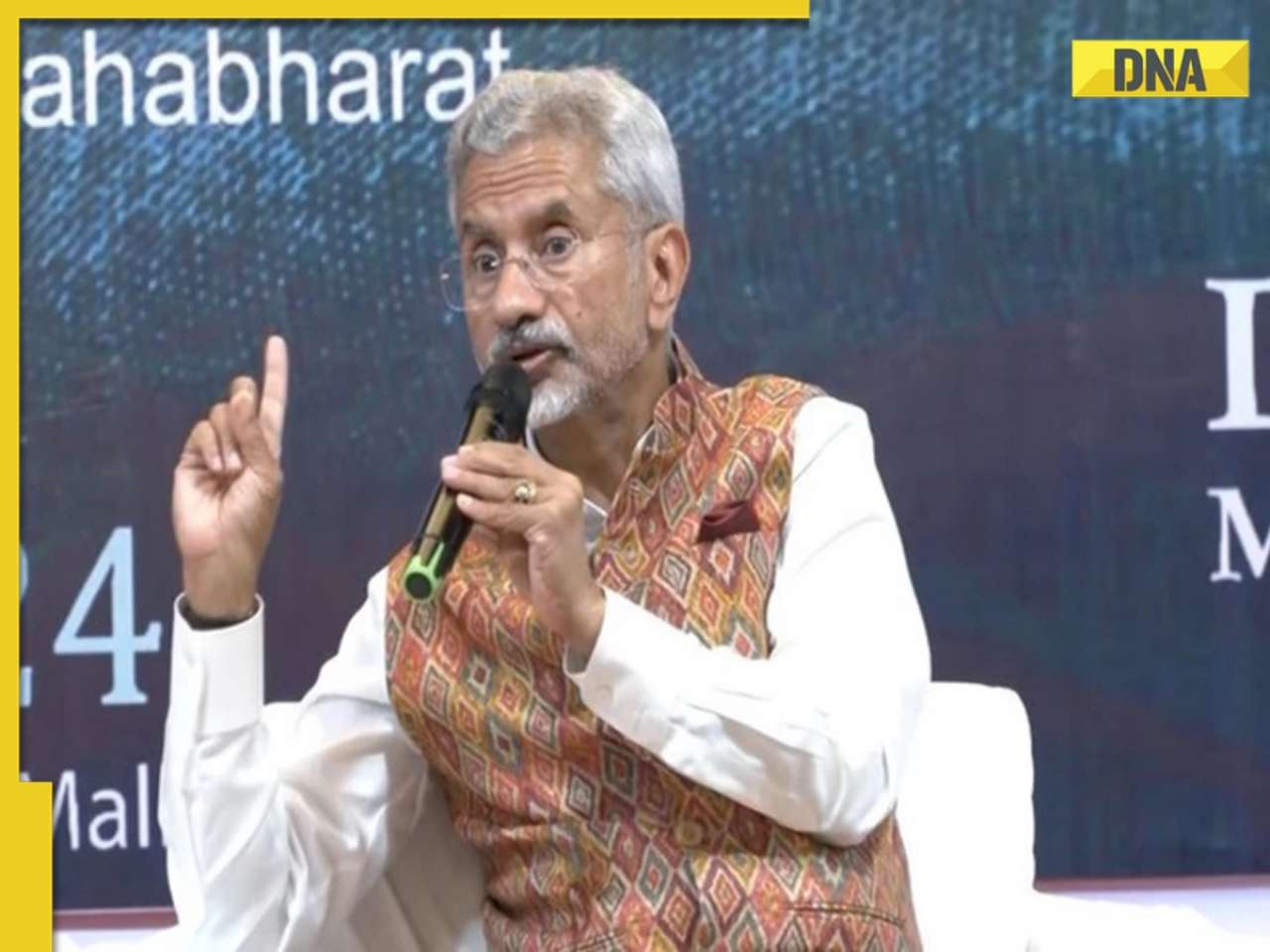The Bangalore-based company hopes to sell 3,000 units this year and 30,000 next, said the 37-year-old mechanical engineer in an interview.
Anil Penna
BANGALORE: At first sight, it looks like a toy car that has grown big on steroids, but a closer look at the two-door hatchback reveals a cable connecting it to a power outlet in a Bangalore shopping mall car park.
Some 2,000 of these zero-polluting city commuters have been put on the roads in India and Europe, including 600 in London, in the six years since Reva Electric Car Co. turned commercial.
The test-marketing phase is now over and the Reva, as the electric car is known, is ready to leap into the mass market for environment-friendly vehicles, said Chetan Maini, deputy chairman and chief technical officer.
The Bangalore-based company hopes to sell 3,000 units this year and 30,000 next, said the 37-year-old mechanical engineer in an interview.
"In the last five years, we innovated and improved and developed the core technologies," said Maini, who studied in Michigan and Stanford universities. "We got the partners and we got the funds.
"Everything has been coming together and we have reached an inflection point to take off," said Maini, who developed the no-clutch, no-gears car as the head of a 75-member team of research engineers.
The company is counting on increasing environmental and energy concerns to power its growth at home and abroad, as soaring petrol prices and pollution worries prompt consumers in the cities to seek alternatives.
"People are now making choices based on such issues," said Maini, who was project leader for the hybrid electric car at Stanford and a team leader of the Michigan solar car team that won the GM Sun Race.
"Oil is near 80 dollars a barrel, may even touch 100, and inner-city pollution is a serious issue," he added. "Energy security and environment are going to be the major issues facing every country in the coming years."
The New Delhi-based Centre for Science and Environment says India needs to "reinvent the idea of mobility" as cities turn into smoke-encased enclaves because of "killer pollution" caused by vehicular emissions.
One often-quoted anecdote says even a non-smoker ends up inhaling the equivalent of a pack of cigarettes by breathing the air of India's cities, where the number of cars sold is forecast by US consultancy Keystone to rise to 20 million by 2030 from one million in 2003.
Energy-hungry India paid 57 billion dollars for oil imports in the year ended March, up more than 30 percent from the previous year, as the cost of crude spiralled.
"Electricity is the solution," said Maini, whose company was formed in 1994 as a joint venture between the family-owned Maini Group and AEV of the United States to design, manufacture and sell environment-friendly vehicles.
"Technology is available now at a cost that makes sense," said the second-generation entrepreneur, who has more than 14 years' experience with electric vehicles. "A non-polluting electric car costs the equivalent of a small petrol car and the operating costs are much less."
His company last month launched a new Reva model, which can seat two adults and two children, billed as the most advanced electric car in the global market.
It can reach a speed of 80 kilometres (50 miles) an hour, up on a previous best of 65 kph.
It also covers 80 kilometres on a single charge of electricity that translates into a cost of one cent per kilometre, a tenth that of a petrol model. The car has improved torque -- up to 40 percent more than the earlier model -- for better hill climbing.
The Reva has better prospects of finding success abroad than in price-sensitive India, where manufacturers are planning to launch a slew of petrol models priced as low as 3,000 dollars, a third of the Reva's price tag.
Already marketed in Britain, Spain, Norway, Italy, Malta, Sri Lanka, Cyprus and Greece, the car benefits from incentives offered to non-polluting vehicles by governments there.
In Britain and Norway, it sells as G-Wiz and is exempt from parking fees as well as congestion and road taxes. Japan gives a 2,600 dollar subsidy for electric-car users and France waives taxes on electricity used to charge the car.
India lacks the infrastructure for electric cars such as battery charging stations, and Reva may appeal only to the environmentally conscious who have small commutes and can afford it, said Greenpeace energy specialist Srinivas Krishnaswamy.
"There's no doubt that it's green and clean," said Krishnaswamy. "Even the cost may be small for the greening of the environment."
![submenu-img]() Meet IIT-JEE topper with AIR 1, son of government school teachers, he went on to pursue...
Meet IIT-JEE topper with AIR 1, son of government school teachers, he went on to pursue...![submenu-img]() Salman Khan house firing case: One more Lawrence Bishnoi gang member arrested by Mumbai Police
Salman Khan house firing case: One more Lawrence Bishnoi gang member arrested by Mumbai Police ![submenu-img]() Mukesh Ambani to host Anant-Radhika's second pre-wedding function: Trip to start from Italy with 800 guests and end in..
Mukesh Ambani to host Anant-Radhika's second pre-wedding function: Trip to start from Italy with 800 guests and end in..![submenu-img]() Driver caught on camera running over female toll plaza staff on Delhi-Meerut expressway, watch video
Driver caught on camera running over female toll plaza staff on Delhi-Meerut expressway, watch video![submenu-img]() 'If you come and do something here...': EAM S Jaishankar on India's 'message' against terrorism
'If you come and do something here...': EAM S Jaishankar on India's 'message' against terrorism![submenu-img]() Meet IIT-JEE topper with AIR 1, son of government school teachers, he went on to pursue...
Meet IIT-JEE topper with AIR 1, son of government school teachers, he went on to pursue...![submenu-img]() TN 11th Result 2024: TNDGE Tamil Nadu HSE (+1) result declared, direct link here
TN 11th Result 2024: TNDGE Tamil Nadu HSE (+1) result declared, direct link here![submenu-img]() Meet doctor who cracked UPSC exam with AIR 9 but didn’t became IAS due to…
Meet doctor who cracked UPSC exam with AIR 9 but didn’t became IAS due to…![submenu-img]() TN 11th Result 2024 to be declared today; know how to check
TN 11th Result 2024 to be declared today; know how to check![submenu-img]() Meet man who worked as coolie, studied from railway's WiFi, then cracked UPSC exam to become IAS, secured AIR...
Meet man who worked as coolie, studied from railway's WiFi, then cracked UPSC exam to become IAS, secured AIR...![submenu-img]() DNA Verified: Is CAA an anti-Muslim law? Centre terms news report as 'misleading'
DNA Verified: Is CAA an anti-Muslim law? Centre terms news report as 'misleading'![submenu-img]() DNA Verified: Lok Sabha Elections 2024 to be held on April 19? Know truth behind viral message
DNA Verified: Lok Sabha Elections 2024 to be held on April 19? Know truth behind viral message![submenu-img]() DNA Verified: Modi govt giving students free laptops under 'One Student One Laptop' scheme? Know truth here
DNA Verified: Modi govt giving students free laptops under 'One Student One Laptop' scheme? Know truth here![submenu-img]() DNA Verified: Shah Rukh Khan denies reports of his role in release of India's naval officers from Qatar
DNA Verified: Shah Rukh Khan denies reports of his role in release of India's naval officers from Qatar![submenu-img]() DNA Verified: Is govt providing Rs 1.6 lakh benefit to girls under PM Ladli Laxmi Yojana? Know truth
DNA Verified: Is govt providing Rs 1.6 lakh benefit to girls under PM Ladli Laxmi Yojana? Know truth![submenu-img]() Remember Harsh Lunia? Just Mohabbat child star, here's how former actor looks now, his wife is Bollywood's popular...
Remember Harsh Lunia? Just Mohabbat child star, here's how former actor looks now, his wife is Bollywood's popular...![submenu-img]() Mother's Day 2024: Bollywood supermoms who balance motherhood, acting, and run multi-crore businesses
Mother's Day 2024: Bollywood supermoms who balance motherhood, acting, and run multi-crore businesses![submenu-img]() Rocky Aur Rani's Golu aka Anjali Anand shocks fans with drastic weight loss without gym, says fitness secret is...
Rocky Aur Rani's Golu aka Anjali Anand shocks fans with drastic weight loss without gym, says fitness secret is...![submenu-img]() In pics: Ram Charan gets mobbed by fans during his visit to Pithapuram for ‘indirect campaign’ for uncle Pawan Kalyan
In pics: Ram Charan gets mobbed by fans during his visit to Pithapuram for ‘indirect campaign’ for uncle Pawan Kalyan![submenu-img]() Streaming This Week: Yodha, Aavesham, Murder In Mahim, Undekhi season 3, latest OTT releases to binge-watch
Streaming This Week: Yodha, Aavesham, Murder In Mahim, Undekhi season 3, latest OTT releases to binge-watch![submenu-img]() Haryana Political Crisis: Will 3 independent MLAs support withdrawal impact the present Nayab Saini led-BJP government?
Haryana Political Crisis: Will 3 independent MLAs support withdrawal impact the present Nayab Saini led-BJP government?![submenu-img]() DNA Explainer: Why Harvey Weinstein's rape conviction was overturned, will beleaguered Hollywood mogul get out of jail?
DNA Explainer: Why Harvey Weinstein's rape conviction was overturned, will beleaguered Hollywood mogul get out of jail?![submenu-img]() What is inheritance tax?
What is inheritance tax?![submenu-img]() DNA Explainer: What is cloud seeding which is blamed for wreaking havoc in Dubai?
DNA Explainer: What is cloud seeding which is blamed for wreaking havoc in Dubai?![submenu-img]() DNA Explainer: What is Israel's Arrow-3 defence system used to intercept Iran's missile attack?
DNA Explainer: What is Israel's Arrow-3 defence system used to intercept Iran's missile attack?![submenu-img]() Salman Khan house firing case: One more Lawrence Bishnoi gang member arrested by Mumbai Police
Salman Khan house firing case: One more Lawrence Bishnoi gang member arrested by Mumbai Police ![submenu-img]() Meet actress, who got rejected for her looks, had no hit for 15 years; later beat Alia, Deepika, Katrina at box office
Meet actress, who got rejected for her looks, had no hit for 15 years; later beat Alia, Deepika, Katrina at box office![submenu-img]() Abdu Rozik breaks silence on his wedding announcement being called ‘publicity stunt’: ‘The whole world is…’
Abdu Rozik breaks silence on his wedding announcement being called ‘publicity stunt’: ‘The whole world is…’![submenu-img]() Meet actress who made debut with Salman Khan, had super flop career, then got TB, now lives in chawl, runs..
Meet actress who made debut with Salman Khan, had super flop career, then got TB, now lives in chawl, runs..![submenu-img]() Meet actress who worked with Naseeruddin Shah, sister of popular models, is now getting trolled on social media for..
Meet actress who worked with Naseeruddin Shah, sister of popular models, is now getting trolled on social media for..![submenu-img]() Driver caught on camera running over female toll plaza staff on Delhi-Meerut expressway, watch video
Driver caught on camera running over female toll plaza staff on Delhi-Meerut expressway, watch video![submenu-img]() Delhi man takes 200 flights in 110 days, steals lakhs worth of jewelry from passengers
Delhi man takes 200 flights in 110 days, steals lakhs worth of jewelry from passengers![submenu-img]() Viral video: Man makes paratha with 'diesel', internet reacts
Viral video: Man makes paratha with 'diesel', internet reacts![submenu-img]() Viral video of 'black jalebi' leaves internet in shock; netizens say 'hey bhagwan...'
Viral video of 'black jalebi' leaves internet in shock; netizens say 'hey bhagwan...'![submenu-img]() Real-life Bambi and Thumper? Adorable deer and rabbit video melts hearts online
Real-life Bambi and Thumper? Adorable deer and rabbit video melts hearts online





































)
















)
)
)
)
)
)